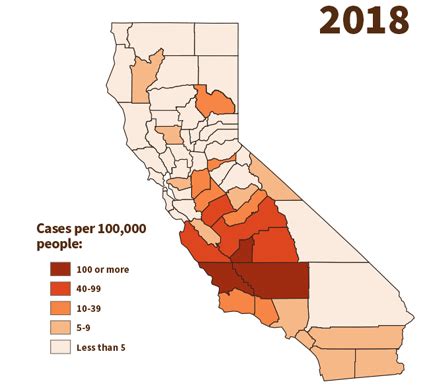Florida’s cottage food law, also known as the Cottage Food Law or the Homemade Food Law, is a set of regulations that allows individuals to operate small, home-based food businesses. The law enables people to sell certain types of homemade foods, such as baked goods, jams, and honey, directly to consumers without having to obtain a commercial food establishment permit. This opportunity has been particularly beneficial for home bakers, who can now turn their passion into a legitimate business.
To operate a home bakery under the Cottage Food Law in Florida, individuals must adhere to specific guidelines and regulations. First, they must ensure that their home kitchen meets the minimum requirements for food safety and handling. This includes having a separate area for food preparation, proper storage and disposal of waste, and maintaining a clean and sanitary environment. Home bakers must also label their products with certain information, such as the name and address of the business, the name of the product, and a statement indicating that the product was made in a cottage food operation that is not subject to standard inspection.
One of the most significant advantages of operating a home bakery under the Cottage Food Law is the reduced regulatory burden. Unlike commercial bakeries, home bakers do not need to obtain a food establishment permit, which can be a costly and time-consuming process. Additionally, home bakers are exempt from many of the regulations that apply to commercial bakeries, such as the requirement for regular inspections and the need to maintain a commercial-grade kitchen.
However, there are also limitations to operating a home bakery under the Cottage Food Law. For example, home bakers are only allowed to sell certain types of products, such as baked goods, jams, and honey, and they are prohibited from selling products that require refrigeration or handling, such as dairy or meat products. Home bakers are also limited in the amount of money they can earn from their business, with a maximum annual gross sales limit of $50,000.
Despite these limitations, many home bakers in Florida have been able to successfully operate their businesses under the Cottage Food Law. By focusing on high-quality, unique products and building a loyal customer base, home bakers can create a profitable and sustainable business. Additionally, the law has provided opportunities for entrepreneurs to earn extra income and pursue their passion for baking.
For those interested in starting a home bakery under the Cottage Food Law in Florida, there are several steps to take. First, individuals should review the law and regulations to ensure they understand the requirements and limitations. They should also develop a business plan, including a marketing strategy and financial projections. Home bakers should also consider obtaining liability insurance to protect themselves and their business in case of any accidents or injuries.
In addition to the basic requirements, home bakers should also be aware of the labeling and packaging requirements for their products. All products must be labeled with the name and address of the business, the name of the product, and a statement indicating that the product was made in a cottage food operation that is not subject to standard inspection. Home bakers should also ensure that their packaging is clean, sanitary, and suitable for the product being sold.
To give readers a better understanding of the types of products that can be sold under the Cottage Food Law, let’s examine a few examples. Baked goods, such as cakes, cookies, and bread, are popular items that can be sold. Jams, jellies, and honey are also allowed, as are certain types of candies, such as caramels and marshmallows. However, products that require refrigeration, such as cheesecakes or cream-filled pastries, are not allowed.
When it comes to marketing and selling products, home bakers have several options. They can sell their products directly to consumers through farmers’ markets, roadside stands, or online platforms. They can also sell their products to restaurants, cafes, or specialty food stores. However, home bakers must ensure that they are complying with all applicable laws and regulations, including those related to sales tax and business registration.
In terms of the economic impact of the Cottage Food Law on Florida’s economy, the law has provided opportunities for entrepreneurs to earn extra income and create jobs. According to a study by the Florida Department of Agriculture and Consumer Services, the cottage food industry in Florida generates millions of dollars in revenue each year. The law has also helped to promote local food systems and support small-scale agriculture.
To further illustrate the benefits and challenges of operating a home bakery under the Cottage Food Law, let’s consider a case study. Sarah, a passionate baker, decided to start a home bakery business under the Cottage Food Law. She developed a business plan, obtained the necessary labels and packaging, and began selling her products at a local farmers’ market. However, Sarah soon realized that she needed to invest in liability insurance to protect herself and her business. She also had to ensure that she was complying with all applicable laws and regulations, including those related to sales tax and business registration.
In conclusion, the Cottage Food Law in Florida provides opportunities for home bakers to operate small, home-based businesses and sell certain types of homemade foods directly to consumers. While there are limitations and regulations that must be followed, many home bakers have been able to successfully operate their businesses under the law. By understanding the requirements and limitations of the law, developing a business plan, and ensuring compliance with all applicable laws and regulations, home bakers can create a profitable and sustainable business.
What types of products can be sold under the Cottage Food Law in Florida?
+Under the Cottage Food Law in Florida, home bakers can sell certain types of homemade foods, such as baked goods, jams, and honey, directly to consumers. However, products that require refrigeration or handling, such as dairy or meat products, are not allowed.
What are the labeling and packaging requirements for products sold under the Cottage Food Law?
+All products must be labeled with the name and address of the business, the name of the product, and a statement indicating that the product was made in a cottage food operation that is not subject to standard inspection. Packaging must be clean, sanitary, and suitable for the product being sold.
How can home bakers market and sell their products under the Cottage Food Law?
+Home bakers can sell their products directly to consumers through farmers' markets, roadside stands, or online platforms. They can also sell their products to restaurants, cafes, or specialty food stores. However, home bakers must ensure that they are complying with all applicable laws and regulations, including those related to sales tax and business registration.
What is the economic impact of the Cottage Food Law on Florida's economy?
+The Cottage Food Law has provided opportunities for entrepreneurs to earn extra income and create jobs. According to a study by the Florida Department of Agriculture and Consumer Services, the cottage food industry in Florida generates millions of dollars in revenue each year. The law has also helped to promote local food systems and support small-scale agriculture.
What are the limitations and challenges of operating a home bakery under the Cottage Food Law?
+Home bakers are limited in the amount of money they can earn from their business, with a maximum annual gross sales limit of $50,000. They are also limited in the types of products they can sell, and they must ensure that they are complying with all applicable laws and regulations, including those related to sales tax and business registration.
In terms of future trends and developments, the Cottage Food Law is likely to continue to evolve and adapt to changing consumer demands and market conditions. As the demand for local and artisanal foods continues to grow, the law may be amended to allow for the sale of a wider range of products or to increase the maximum annual gross sales limit. Additionally, the law may be modified to include new labeling and packaging requirements or to provide additional support and resources for home bakers.
Overall, the Cottage Food Law in Florida provides a unique opportunity for home bakers to operate small, home-based businesses and sell certain types of homemade foods directly to consumers. By understanding the requirements and limitations of the law, developing a business plan, and ensuring compliance with all applicable laws and regulations, home bakers can create a profitable and sustainable business. As the law continues to evolve and adapt to changing market conditions, it is likely to remain an important part of Florida’s food economy.
In conclusion, the Cottage Food Law in Florida is a complex and multifaceted law that provides opportunities for home bakers to operate small, home-based businesses and sell certain types of homemade foods directly to consumers. By understanding the requirements and limitations of the law, developing a business plan, and ensuring compliance with all applicable laws and regulations, home bakers can create a profitable and sustainable business. As the law continues to evolve and adapt to changing market conditions, it is likely to remain an important part of Florida’s food economy.
To further explore the topics and issues related to the Cottage Food Law in Florida, let’s examine some additional resources and references. The Florida Department of Agriculture and Consumer Services provides a wealth of information on the law, including guidance on labeling and packaging requirements, sales tax and business registration, and food safety and handling. The Florida Small Business Development Center also offers resources and support for home bakers, including business planning and marketing assistance.
In terms of future research and development, there are several areas that could be explored in more depth. One potential area of research could be the economic impact of the Cottage Food Law on Florida’s economy, including the number of jobs created and the amount of revenue generated. Another potential area of research could be the consumer demand for local and artisanal foods, including the types of products that are in highest demand and the factors that influence consumer purchasing decisions.
Overall, the Cottage Food Law in Florida is an important and complex law that provides opportunities for home bakers to operate small, home-based businesses and sell certain types of homemade foods directly to consumers. By understanding the requirements and limitations of the law, developing a business plan, and ensuring compliance with all applicable laws and regulations, home bakers can create a profitable and sustainable business. As the law continues to evolve and adapt to changing market conditions, it is likely to remain an important part of Florida’s food economy.
In terms of the broader implications of the Cottage Food Law, it is likely to have a significant impact on the food industry as a whole. As consumer demand for local and artisanal foods continues to grow, the law may be amended to allow for the sale of a wider range of products or to increase the maximum annual gross sales limit. Additionally, the law may be modified to include new labeling and packaging requirements or to provide additional support and resources for home bakers.
Overall, the Cottage Food Law in Florida is a complex and multifaceted law that provides opportunities for home bakers to operate small, home-based businesses and sell certain types of homemade foods directly to consumers. By understanding the requirements and limitations of the law, developing a business plan, and ensuring compliance with all applicable laws and regulations, home bakers can create a profitable and sustainable business. As the law continues to evolve and adapt to changing market conditions, it is likely to remain an important part of Florida’s food economy.
To further illustrate the benefits and challenges of operating a home bakery under the Cottage Food Law, let’s consider a case study. Emily, a passionate baker, decided to start a home bakery business under the Cottage Food Law. She developed a business plan, obtained the necessary labels and packaging, and began selling her products at a local farmers’ market. However, Emily soon realized that she needed to invest in liability insurance to protect herself and her business. She also had to ensure that she was complying with all applicable laws and regulations, including those related to sales tax and business registration.
In conclusion, the Cottage Food Law in Florida provides a unique opportunity for home bakers to operate small, home-based businesses and sell certain types of homemade foods directly to consumers. By understanding the requirements and limitations of the law, developing a business plan, and ensuring compliance with all applicable laws and regulations, home bakers can create a profitable and sustainable business. As the law continues to evolve and adapt to changing market conditions, it is likely to remain an important part of Florida’s food economy.
- Develop a business plan, including a marketing strategy and financial projections.
- Obtain the necessary labels and packaging for your products.
- Ensure that you are complying with all applicable laws and regulations, including those related to sales tax and business registration.
- Invest in liability insurance to protect yourself and your business.
- Begin selling your products at a local farmers' market, roadside stand, or online platform.
By following these steps and understanding the requirements and limitations of the Cottage Food Law, home bakers can create a profitable and sustainable business. As the law continues to evolve and adapt to changing market conditions, it is likely to remain an important part of Florida’s food economy.


